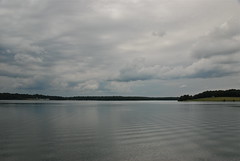Before one can answer what is meant by waste of time one needs to ask what is meant by time itself? Time is a means of measuring change. If there were no change there would be no time.
If time can be related to change, then waste of time could be related to spending time such that it leads towards a change that is wasteful. This could be through unfruitful effort, undirected or wrongly directed effort, or even due to lack of effort. To prevent “waste” would mean to use time to arrive at a desirable outcome through the progression of change. How then that time is spent which is not considered a waste? What may be considered as a desirable consequence of expense of one’s time?
Given that we all desire happiness as an end goal – consciously or subconsciously – of all our activities anything that does not lead us towards it may be considered a waste. And time spent in pursuits that either do not abet joy or serve to bring sorrow could then be considered as a waste of time.
One must also consider the question of pleasure or fleeting happiness – that which promises and often delivers happiness and excitement in the short run but has a tendency to bring pain in the long haul. We all have experiences to share in this realm – driven by our tendency to give into impulses relating to anger, lust, jealousy, or greed.
There is also the case of spending time on activities that do not bring about any immediate pleasure or gratification – some may even be painful or difficult – but bring better quality of life down the road. Regular exercise, for those not particularly inclined towards it, can be one such example.
These observations raise the interesting question of how is one to know whether a given action or indulgence will lead to happiness in the long run or not a.k.a. how to determine whether this spend of time is waste or not? This is where the inner guiding compass comes in, which, if one observes carefully, is the experience distilled through the ages in form of one’s consciousness. Some call it the inner voice others call is the voice of one’s conscience. It is that faint whisper that is there at the beginning of every action, which we ignore at our own peril. When we are jealous we experience suffering then and there without even acting on its impulse. When we are whole-heartedly generous, we are in joy then and there without fulfillment of any expectation or reciprocation. To not pay attention is to miss these connections and consequently walk down pathways that eventually become blind alleys.
One could also rely on the experiences passed down as ‘text’ from those who claim to ‘know’. But this borrowed knowledge which was crafted to show the path towards lasting joy can in itself become an impediment to it, and hence a time waste, if abstracted towards application without understanding or if pursued as mere entertainment. A good example would be the edict to ‘be in the present moment’. Very few of us understand what this means or how to actually be in the present moment. To even think of this idea is to have moved away from the present moment. However, we all keep reciting it in our minds, chastising ourselves for thinking of past or future while caught in the conflict of trying to be in the present. The knowledge that was supposed to deliver us from suffering is now only serving to add to our misery and confusion owing to our applying it blindly to be rid of our suffering without putting much effort into attempting to understand what it means to be in the present moment, whether it truly can alleviate one’s suffering, whether coming to present moment can make the suffering go away or is deviating from the present moment the very cause and basis of all suffering. In absence of such inquiry we turn all medicine into poison.
It is important that one know how to spend time rightly. One barometer for assessing whether one has spent one’s time wisely is to realize that when the time’s been spent in accordance with one’s inner compass one feels energetic and peaceful at the completion of the effort. If such is not the case one can know that one was very likely working on the wrong thing, in the wrong way, or is resting at the wrong time – either chronologically or psychologically – marked by the absence of the feeling of gratification and the joy that accompanies having spent one’s time rightly.
Another aspect to consider is that of the transient nature of things. Everything that one knows is constantly changing, coming and going, beginning and ending, flowering and withering away. How is everlasting joy to be found in pursuing that which is transient? If one’s joy is because of an outer phenomenon then that phenomenon has to last forever for the joy to never diminish. But since all outer phenomena are ephemeral and transient then surely they cannot be the source for eternal joy.
Is eternal joy then a myth? Does it really exist? Or is it another invention of this mind that is ever-indulgent in seeking ways to fulfill its pursuits of pleasure? One would need to find out. Not through books, not through organizations, not through another but through one’s own inquiry.
Through centuries man has searched for eternity in the transient – be it in family, in prestige, in wealth, in power, in fame or in organized religion. And for centuries man has allowed himself to be fooled – by another or by oneself. Through the entire known history of mankind there are only a handful of people who have managed to come upon that state of eternal bliss. However, in our ignorance we either follow them blindly or become skeptical of and denounce or belittle their state of being. How ironic that those whom we follow in search of their destination never followed another to come upon that which they found and what we so desperately seek. How ironic that they did not come upon it as long as they were following or seeking. How ironic then that we should choose to depend on another to walk the path to our happiness. Any wonder we live our lives in sorrow and suffering?
If one were to understand the grave significance and the utter urgency of this realization then one would also realize the severe implications that this awakening has towards how one lives one’s daily life. One would then realize that none of one’s daily pursuits – of power, of ambition, of position, of things – will ever lead one to that place where one seeks to reach. It is only then that one can realize the utter waste of time that an unexamined existence makes.
Some would take this realization as a call against the material world. However, the material world is neither to be denounced nor to be renounced. There lies no greater consequence in renouncing this world than there lies in pursuing it. Fundamentally both of these lifestyle choices are two aspects of the same quest – to come upon a state of uninterrupted joy either by means of acquiring all that is possible or renouncing all that can be renounced. But neither by itself can lead one to the sought. The material of this world is to be used wisely and to the same end as one would use one’s time – in understanding what would bring about that never-changing state of being that is devoid of suffering in oneself and in another. One can then live a life of acquiring materials essential to comfortable contemplation of this issue, to find the means to joy, to come up on a state of peaceful joyousness that does not depend on anything at all. And in such contemplation and inquiry one can then sincerely determine – for oneself – whether one is using one’s time wisely or is it all just a big time waste.


